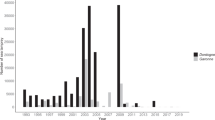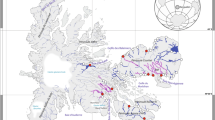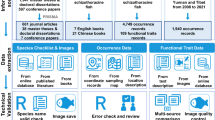Abstract
INTRODUCTIONS of foreign species, the results of which deserve close scrutiny, are not confined to mammals. Rainbow trout are now a permanent element in our fauna, black bass are established in certain places, and now the case of the pike-perch in East Anglia deserves to be put on record. On March 4, 1934, a Lucioperca of 11¾ lb. was caught in the River Delph, near Welney, in the Ouse basin, and was brought here for identification. Five species of the genus are known, two in the rivers and lakes of eastern and northern Europe, one in the Black and Caspian Seas, and two (placed by some authors in a separate genus Stizostedion) in Canada and the northern U.S.A. Comparison with specimens in the B.M. (Nat. Hist.) revealed that the Welney fish resembles the American species in five characters and the European in four, but in view of the structural importance of the American characters (especially the distance between the pelvic fins) it is reasonably certain that it came from the American species Lucioperca vitrea, Mitchill.
This is a preview of subscription content, access via your institution
Access options
Subscribe to this journal
Receive 51 print issues and online access
$199.00 per year
only $3.90 per issue
Buy this article
- Purchase on Springer Link
- Instant access to full article PDF
Prices may be subject to local taxes which are calculated during checkout
Similar content being viewed by others
Author information
Authors and Affiliations
Rights and permissions
About this article
Cite this article
WORTHINGTON, E. The Changing British Fish Fauna. Nature 134, 26–27 (1934). https://doi.org/10.1038/134026b0
Issue Date:
DOI: https://doi.org/10.1038/134026b0
Comments
By submitting a comment you agree to abide by our Terms and Community Guidelines. If you find something abusive or that does not comply with our terms or guidelines please flag it as inappropriate.



